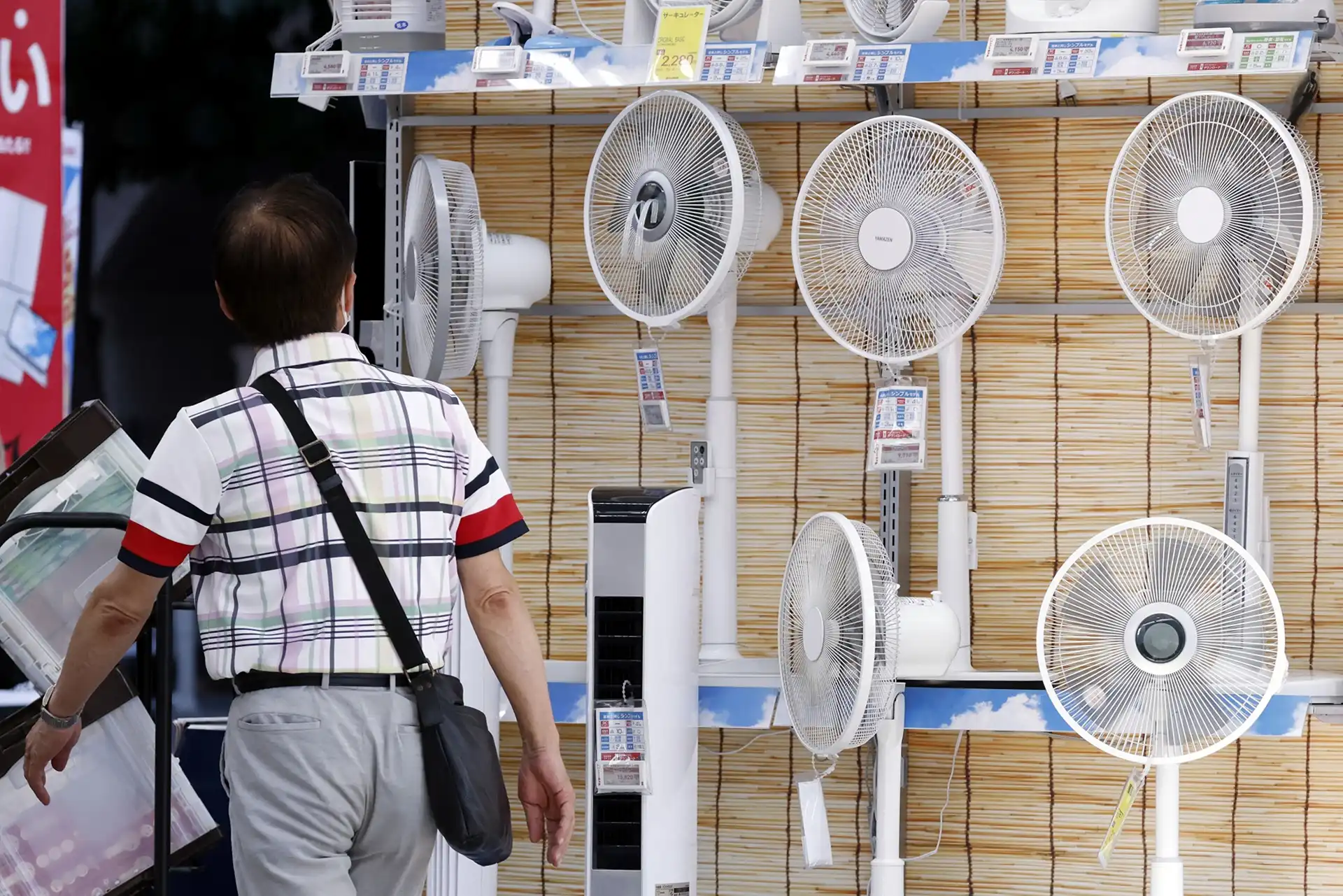BLOOMBERG – Climate change is killing the elderly in Japan and the government wants to stop it.
An average of 1,145 people have died annually of heatstroke between 2017 and 2021, according to the Environment Ministry. In 2020, 86 per cent of the deaths were above the age of 65.
Japan’s cabinet is slated to approve a plan that outlines measures to combat the rising number of deaths from heatstroke, according to an Environment Ministry official. The move comes as climate change is leading to scorching temperatures and frequent heat waves, affecting countries all around the world.
Japan has one of the oldest populations in the world, with almost 30 per cent of its citizens over the age of 65. While details of the plan are still under debate, it will address preventing deaths among the elderly, who are among the most vulnerable to heat stress, the official said.
Victims of heat stroke sometimes avoid air-conditioning for multiple reasons, such as saving money. In central Tokyo last summer, roughly 90 per cent of those who died were not using air-conditioning, according to the government. The plan will encourage the elderly to use air-conditioning as well as establishing cooling shelters equipped with air-conditioning in local municipalities.
Many other countries in Asia, including India, Vietnam, the Philippines and Thailand, have suffered from record temperatures this year. The El Nino weather pattern could also bring hotter, drier conditions to parts of Asia and Australia.
NHK reported earlier that the heatstroke measures could be approved by the cabinet next week.



